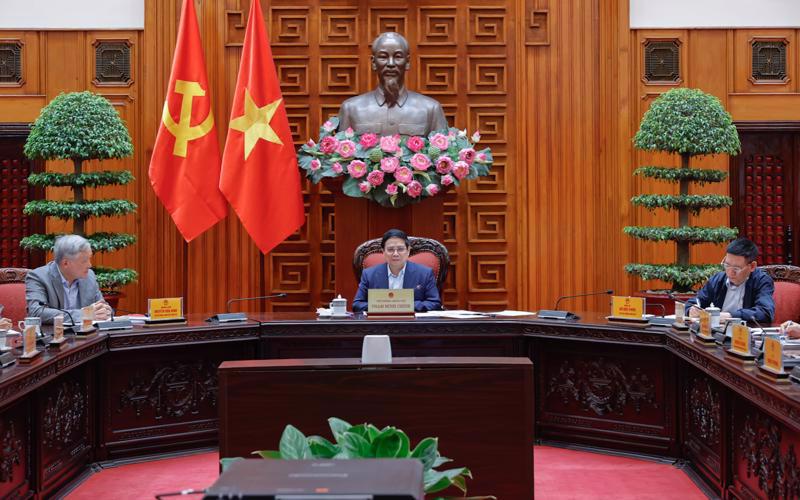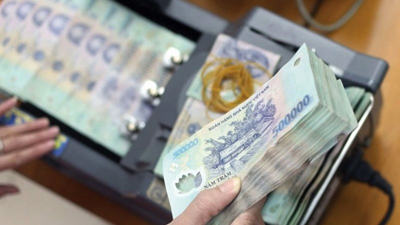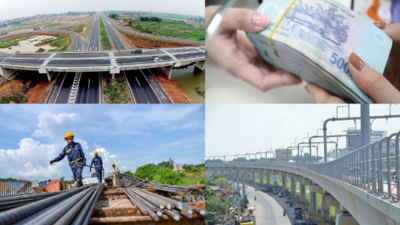First meeting of the Steering Committee on the Regional and International Financial Centers in Vietnam held
PM Pham Minh Chinh stressed the importance of fostering public-private partnerships, mobilizing resources from businesses and the public, and building an advanced financial center.

Prime Minister Pham Minh Chinh has requested proposals for building an international financial center suitable to Vietnam's conditions.
During the inaugural meeting of the Steering Committee on the Regional and International Financial Centers in Vietnam on April 3, the PM emphasized that establishing regional and international financial centers is both a challenging and novel endeavor for the country.
The PM urged the Steering Committee, relevant ministries, agencies, and localities to closely adhere to the conclusions of the Politburo and the directives of Party General Secretary To Lam on the matter. He called for the refinement of relevant documents and proposals, with further clarification on key points.
"Develop independent, specific, special, superior, modern, and competitive mechanisms and policies," the PM emphasized, suggesting that "the administrative boundaries of the center should be relatively flexible, ensuring convenience and the most optimal and effective implementation."
He also stressed the importance of fostering public-private partnerships, mobilizing resources from businesses and the public, and building an advanced financial center. This would be achieved by enhancing digitalization, employing scientific and technological solutions for smart operations and management, ensuring security and safety, establishing effective supervision and dispute resolution mechanisms, and attracting high-quality human resources from both the public and private sectors domestically and internationally.
PM Chinh further highlighted the need for proposed regulations to clearly delineate authority for implementation, particularly in addressing emerging issues not yet covered by legal frameworks or where existing regulations have been overtaken by practical developments.
Alongside the finalization of documents for submission to the Politburo and the National Assembly, relevant ministries and agencies were tasked with drafting implementing decrees based on their functions, responsibilities, and authority.







